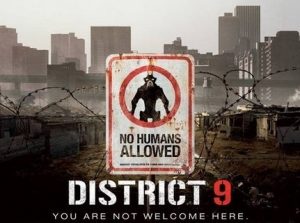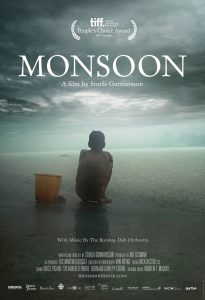Known worldwide in the film industry as “Hollywood North,” Vancouver has a history of producing some of the finest film directors in the world. Since 2000, over a billion dollars worth of revenue has been attributed towards film productions in Vancouver each year. Today, Vancouver is in an excellent position to carve out an even bigger place in the world of film, and this will surely translate into more and more film directors emerging from the city.
Here are 7 Vancouver film directors that have already made it big:

Neill Blomkamp – Undoubtedly one of the most exceptional products of Vancouver, Neill Blomkamp is best known for directing Elysium and District 9. In addition to directing, he has made a name for himself in the film industry as an adept animator, screenwriter, and producer. Like so many people, Blomkamp first entered Vancouver as an immigrant at the age of 18, moving with his family from South Africa. He quickly established himself as an animator for TV shows like Dark Angel and Stargate: SG1, before his services were sought out by producer Peter Jackson for Blomkamp’s directorial debut, District 9.
Evan Goldberg – This immensely successful director has had an incredible career, working on multiple well-known productions as a director, writer, and producer. He is perhaps best known for his collaborations with his childhood friend, Seth Rogen, although unlike Rogen, Goldberg stays behind the camera. Born in Vancouver, he drew inspiration from his birthplace to write the film Superbad in collaboration with Seth Rogen. His directorial debut began with the film This is the End. More recently he directed The Interview.
Seth Rogen – Although he is best known for his acting roles, Seth Rogen has become one of the highest achieving directors to come out of Vancouver. He has also emerged as an incredibly successful writer and producer, with TV shows such as The Ali G Show and The Simpsons making use of his comedic wit as a writer. Collaborating on the aforementioned films with childhood friend Evan Goldberg, his films have consistently proven box office hits, including his directorial work for This is the End, and The Interview.
Allan King – Focusing his attention mostly on documentary films, Vancouver born Allan King was one of the key pioneers of ‘cinema verite.’ His directorial career has left a lasting impression on the world of art, and there have been numerous exhibits of his work in art galleries and museums across the world. In addition to documentaries, he also directed numerous feature films and TV episodics, winning awards such as BAFTA‘s Best Foreign Film Award, the New York Critics’ Circle Award, the Golden Reel Award, and many more. King died in 2009.

Sturla Gunnarsson – A household name in Canadian film, Sturla Gunnarsson emigrated to Vancouver from Iceland at age 7. A Day Much Like the Others, one of his very first projects as a film student in Vancouver, was one of the highest achieving student films in both Canada and Europe at the time. He directs both feature and documentary films, and was nominated for an Academy Award for his documentary, After the Axe.
Daryl Duke – Daryl Duke became an icon of Vancouver film before passing away in 2006, winning a Primetime Emmy Award in 1971 for ‘Outstanding Directorial Achievement in a Drama’ for his work on The Bold Ones: The Senator. The native Vancouverite also won the Canadian Film Award after directing the critically acclaimed film The Silent Partner.
Mina Shum – Another immigrant to Vancouver at a young age, Mina Shum has proved a worthy addition to Canadian film. She won the Wolfgang Staudte Prize at the Berlin Film Festival for Best First Film for her feature film Double Happiness, which also premiered at the Sundance Film Festival. Many of her other short films and features have earned awards and nominations as well.






